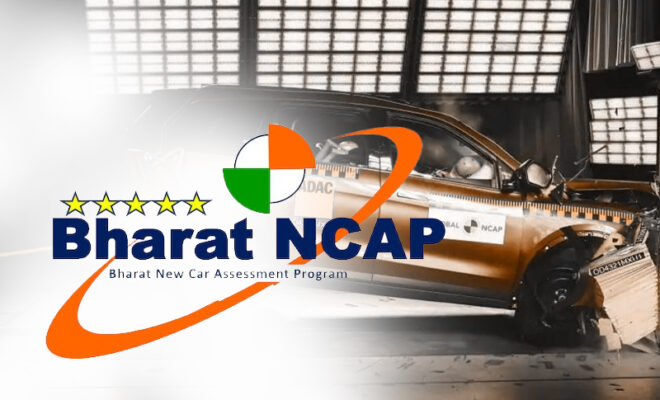What Is Bharat NCAP, The New Indian Vehicle Safety Norms?

India is launching the Bharat New Car Assessment Programme (NCAP), its own crash test rating assessment system. This makes India the 5th country to have its own crash test program, joining the USA, Japan, South Korea, and China.
The program aims to raise the bar for road safety for motor vehicles weighing up to 3.5 tonnes. Car manufacturers can voluntarily test their vehicles under the new norms, but it is not compulsory.
The Bharat NCAP will give ratings to vehicles based on how they perform in the test, with ratings for adult occupants and child occupants.
The program will test cars based on criteria such as pedestrian-friendliness, structural safety, active or passive safety support technology, and safety for both adults and children.
The testing agency will have the power to pick up any vehicle from the showroom and test it. The launch of the Bharat NCAP is expected to increase the demand for safer cars in India and boost the export potential of Indian-manufactured vehicles.
The program is part of the government’s commitment to improving road safety and reducing road accidents. In 2021, 1.54 lakh people lost their lives and 3.84 lakh were injured in road accidents in India.
The government is also investing in road infrastructure and spending about Rs 40,000 crore to remove “black spots” on roads.
The launch of the Bharat NCAP is expected to create a safety-sensitive car market in India and help reduce road accidents and deaths.
Union Minister of Road Transport and Highways, Nitin Gadkari, has emphasized the importance of good roads in promoting economic growth. He quoted former US President John F Kennedy, who had said,
“American roads are not good because America is rich, but America is rich because American roads are good.”
Also Read:- Supreme Court Approves Establishment of Permanent Environmental Experts Body
Gadkari aims to reduce road accidents and deaths by 50% by 2024. This will lead to an increased demand for safer cars, encouraging car manufacturers to meet customer needs.
By improving safety standards, Indian cars can better compete in the global market, boosting the export potential of Indian car manufacturers. Additionally, investing in road infrastructure creates jobs and has a positive impact on the economy.



